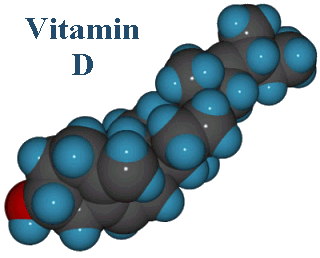 Researchers from Germany studied the effect of vitamin D on weight loss and on risk factors associated cardiovascular disease in overweight people.
Researchers from Germany studied the effect of vitamin D on weight loss and on risk factors associated cardiovascular disease in overweight people.
First, the details.
- 200 healthy overweight people were treated with vitamin D (83 µg/day) or placebo for 12 months.
- Neither the participants nor the researchers knew the treatment given — double-blind.
- The average blood level of vitamin D (25[OH]D) at the start of the study was 30 nmol/L (12 ng/mL).
- Normal range is 16 to 74 ng/mL.
- Everyone participated in a weight-reduction program.
And, the results.
- Weight loss was not affected by vitamin D supplementation.
- However, vitamin D and calcitriol blood levels increased significantly in the vitamin D group vs placebo.
- Calcitriol helps regulate and calcium absorption.
- Blood levels of parathyroid hormone, triglycerides, and tumor necrosis factor-{alpha} decreased significantly more with vitamin D vs placebo.
- Tumor necrosis factor-{alpha} is used to measure inflammation, which is associated with the risk of heart disease.
- These changes were not related to weight reduction, fat mass, and gender.
- On the negative side, vitamin D supplementation significantly increased LDL (bad) cholesterol levels 5.4% compared to a 2.5% decrease with placebo.
The bottom line?
Vitamin D did not affect weight loss.
Regarding the risk factors for heart disease, the authors concluded, “Vitamin D supplement of 83 µg/day… is able to significantly improve several cardiovascular disease risk markers in overweight subjects with inadequate vitamin D status participating in a weight-reduction program.”
4/20/09 20:56 JR